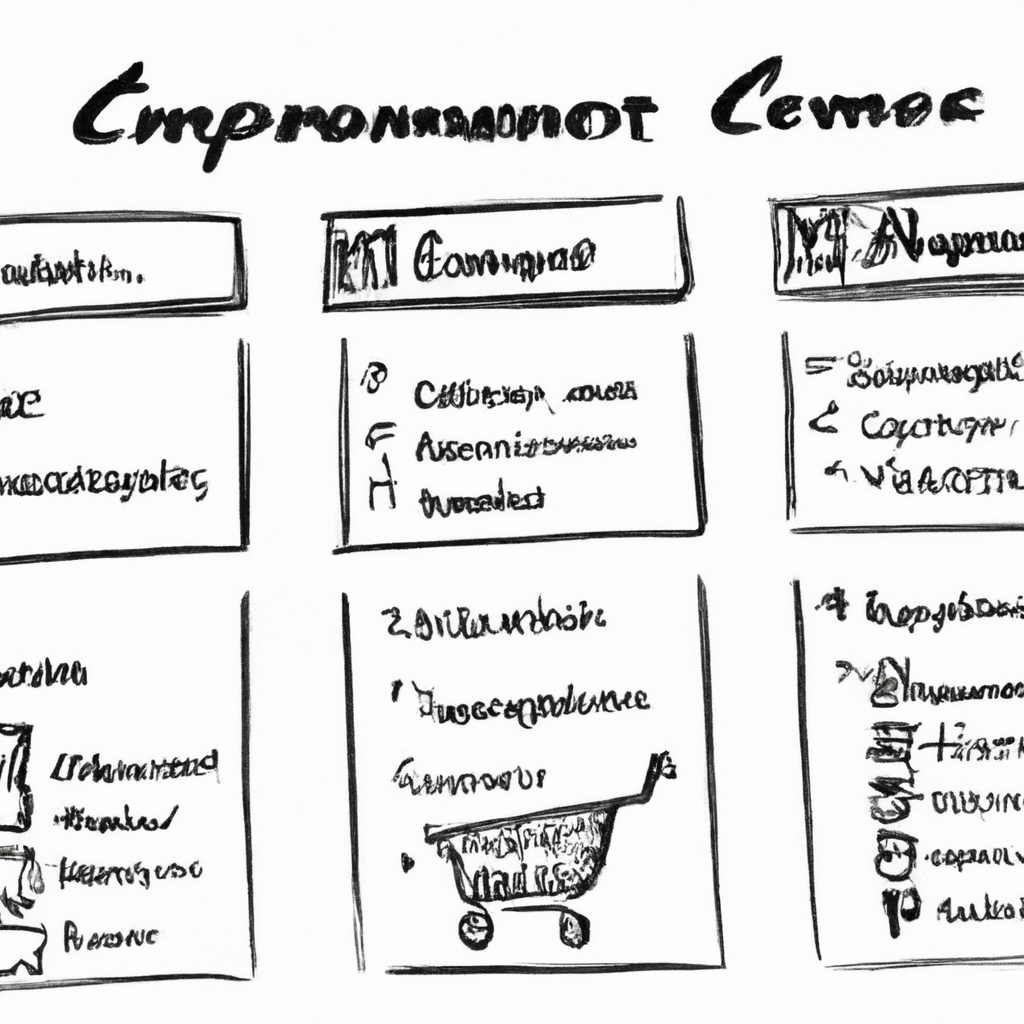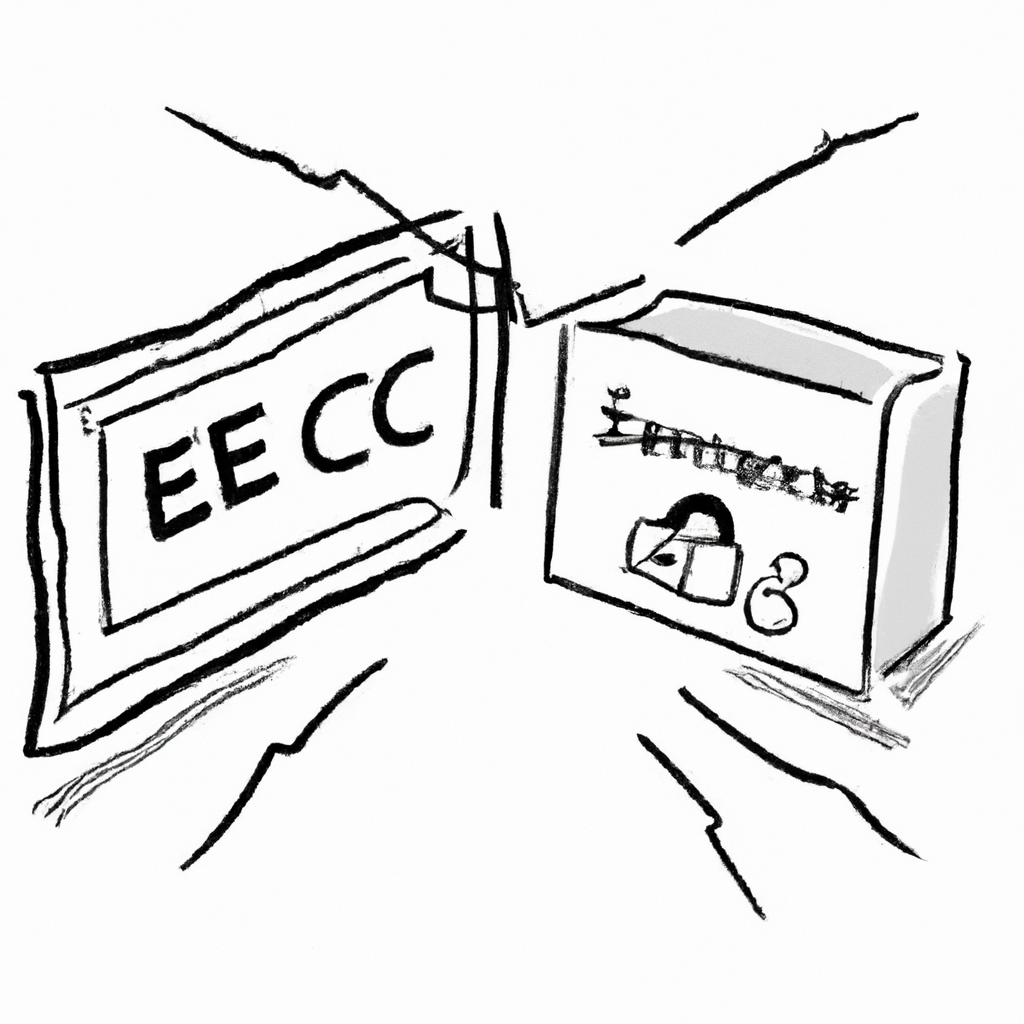Dear Readers,
AI plays a crucial role in our blog, helping us manage our time more effectively to keep the content flowing. While AI assists with content creation, which may lead to occasional spelling or grammar errors, our primary goal remains clear: to deliver meaningful insights to you. For important matters, please consult a specialist.
Thank you for your understanding and support.
Best regards,
Education.com.cy
Summary
The article discusses the challenges and considerations involved in choosing the right e-commerce platform. It highlights common misconceptions among clients, such as expecting quick profits and underestimating the complexity of running an online store. The author emphasizes the importance of selecting a platform based on the developer’s experience and the project’s budget, rather than just familiarity with a particular system. The article also touches on the need for good organizational skills, the role of digital marketing, and the importance of understanding operational marketing. Additionally, it addresses issues related to website downtime, promotion problems, and the necessity for clear communication between business owners and developers. The conclusion underscores the need for mutual understanding and collaboration to ensure the success of an e-commerce project.
Introduction
Choosing the right e-commerce platform is a critical decision for any business looking to establish an online presence. The platform you select will not only affect the functionality and scalability of your online store but also influence the overall user experience and operational efficiency. A well-chosen platform can streamline product management, enhance customer engagement, and support effective marketing strategies, while a poor choice can lead to technical difficulties, limited growth potential, and increased costs. Therefore, understanding the unique needs of your business and evaluating the capabilities of various e-commerce platforms is essential for long-term success in the competitive online marketplace.

Main Sections
Key Considerations
When choosing the right e-commerce platform, several key considerations should be taken into account:
- Developer Expertise: Ensure that the developer has experience with the platform and can build a custom design from scratch if needed. Avoid developers who only know how to use basic functions like installing plugins or assigning widgets.
- Platform Flexibility: Choose a platform that allows for customization and scalability based on your business needs and budget. Good developers can work with various platforms like WordPress, OpenCart, and Shopify without limitations.
- Client Understanding: Be clear about the differences between owning an e-shop and marketing it. Effective e-commerce requires both a well-built platform and a solid marketing strategy, including SEO and social media.
- Operational Marketing: Consider how the platform supports operational marketing efforts, such as automating tasks like product uploads and social media updates.
- Budget and Costs: Understand the costs involved, including potential future expenses for updates, maintenance, and marketing. Be wary of developers who promise low costs but lack the necessary skills.
- Technical Support and Downtime: Ensure the platform offers reliable technical support and understand the limitations of web hosting services. No service guarantees 100% uptime, so consider additional services like Cloudflare to minimize downtime.
- Client-Developer Communication: Establish clear communication and expectations with your developer to avoid misunderstandings and ensure both parties understand their roles and responsibilities.

Popular E-commerce Platforms
Popular e-commerce platforms include WordPress, OpenCart, and Shopify. These platforms allow developers to build and customize online stores, provided they have the necessary skills and experience.
- WordPress: Known for its flexibility and extensive plugin ecosystem.
- OpenCart: Offers a user-friendly interface and a wide range of extensions.
- Shopify: Provides a comprehensive solution with built-in tools for marketing and sales.

Cost Analysis
The cost analysis of e-commerce platforms can vary significantly based on several factors. These include the platform chosen (such as WordPress, OpenCart, or Shopify), the experience and skill level of the developer, and the specific requirements of the e-commerce site. A good programmer can build a custom design from scratch, which may increase costs but provide more flexibility and functionality. Additionally, ongoing costs such as web hosting, marketing, and potential downtime need to be considered. It’s also important to factor in the cost of professional services for tasks like SEO and social media marketing, as well as the potential need for operational marketing tools to streamline processes.

Customization and Flexibility
Customization and flexibility in e-commerce platforms largely depend on the skills and experience of the developer. While platforms like WordPress, OpenCart, and Shopify offer various templates and plugins, a proficient developer can build a custom design from scratch, tailored to specific needs. The choice of platform should be based on the project budget and the developer’s expertise, rather than just familiarity with a particular platform. True customization goes beyond simply installing plugins or modules; it involves understanding server specifications and creating a seamless, functional design that meets the client’s requirements.

Security Features
E-commerce platforms typically offer a range of security features to protect both the business and its customers. These features often include SSL certificates for secure data transmission, encryption of sensitive information, two-factor authentication for user accounts, regular security updates and patches, and compliance with standards such as PCI-DSS for handling payment information. Additionally, many platforms provide tools for monitoring and detecting fraudulent activities, as well as options for secure payment gateways to ensure safe transactions.

Customer Support
Customer support in e-commerce platforms is crucial for maintaining customer satisfaction and ensuring smooth operations. Effective customer support involves addressing issues promptly, providing clear communication, and offering solutions that enhance the user experience. It includes handling inquiries about products, resolving technical problems, managing returns and refunds, and assisting with order tracking. Additionally, good customer support can help in building trust and loyalty, which are essential for the long-term success of an e-commerce business.

Case Studies
Choosing the right e-commerce platform involves understanding the specific needs and capabilities of both the business owner and the developer. It’s important to select a platform that aligns with the business’s goals and the developer’s expertise. For instance, platforms like WordPress, OpenCart, and Shopify can all be effective if the developer is skilled and experienced. However, issues can arise if the developer lacks the necessary knowledge and simply relies on basic template setups without understanding deeper functionalities or server specifications. Therefore, the decision should be based on the budget, the complexity of the required features, and the developer’s ability to customize and manage the platform effectively.

Conclusion
Choosing the right e-commerce platform involves several key considerations:
- Understand Client Expectations: Clients often have unrealistic expectations about quick profits and the simplicity of running an e-shop. Educators and parents should emphasize the importance of realistic goals and the effort required.
- Platform Flexibility: All major e-commerce platforms like WordPress, OpenCart, and Shopify can be customized extensively if the developer is skilled. The choice of platform should be based on the developer’s expertise and the specific needs of the business.
- Developer Competence: Not all who claim to be developers have the necessary skills. It’s crucial to ensure that the developer understands both the technical and business aspects of e-commerce, including server specifications and operational marketing.
- Operational Marketing: Effective e-commerce requires more than just a functional website. Operational marketing, which integrates various tasks like product uploads and social media updates, is essential. Educators should highlight the importance of this to students and parents.
- Website Maintenance and Downtime: No website can guarantee 100% uptime. It’s important to set realistic expectations about website maintenance and potential downtimes. Using tools like Cloudflare can help minimize these issues.
- Budgeting and Costs: Clients often underestimate the costs involved in building and maintaining an e-commerce site. Educators should stress the importance of budgeting for both development and ongoing marketing efforts.
- Communication and Understanding: Both developers and business owners need to communicate effectively and understand each other’s roles and challenges. This mutual understanding is crucial for a successful e-commerce project.
By focusing on these practical takeaways, educators and parents can better guide students and aspiring entrepreneurs in choosing the right e-commerce platform and understanding the broader context of running an online business.

Thank you for reading our article on Choosing the Right E-commerce Platform. We highly value your feedback and invite you to take a brief survey to share your thoughts and experiences. Your responses will be kept confidential.
Dear Readers,
Welcome to my blog, where technology, music, and visual arts come together to spark creativity and growth. By subscribing, you’ll become part of a vibrant community committed to exploring and learning in these areas.
Select the type of engagement that suits you best:
Join us and enjoy tailored content and direct support suited to your interests.
